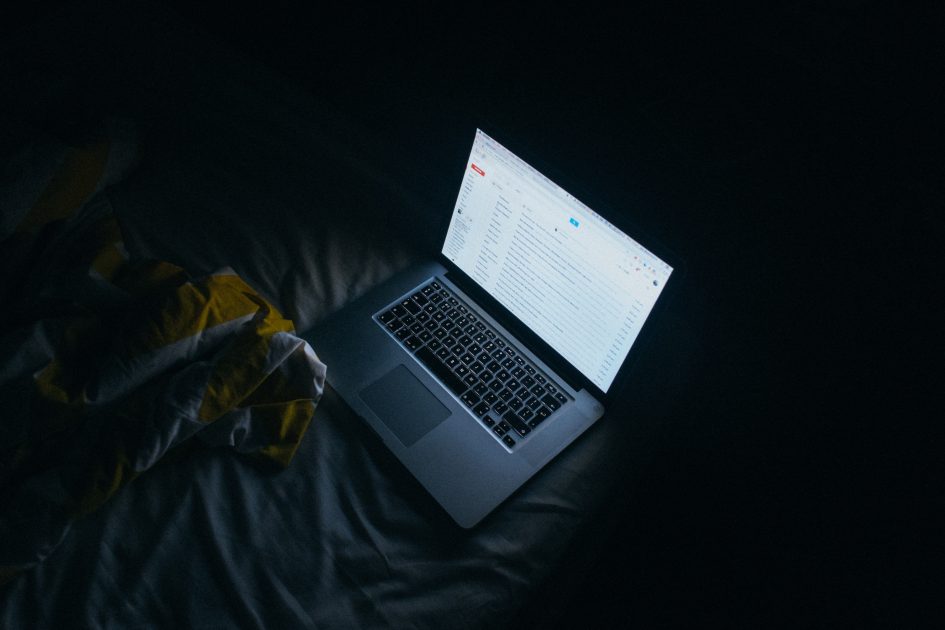Back in the day, evenings were categorized by darkness. The sun would dictate waking and sleeping, and people had to put some effort into illuminating their surroundings by lighting candles or stoking fires. Today, light is available at the flip of a switch and electronics have infiltrated our evening routines. Many of us now have to make an effort to power down and divert our attention from light-emitting devices.
Blue light, which emanates from electronics such as smartphones, tablets, laptops and other gadgets as well as energy-efficient lights, can compromise our health. It can cause eye strain, disrupt our sleep and increase our risk of diseases, such as diabetes, obesity and some cancers. This is because blue light can throw our circadian rhythms out of whack by suppressing melatonin, a chemical that regulates the body’s internal clock and signals when it’s time to wind down. Our bodies naturally synchronize to the 24-hour cycle of the Earth’s rotation and take cues from the light our eyes take in. Blue light signals our brains that it’s time to be alert rather than sleepy.
Not all light has the same impact on our bodies. Blue light, in particular, seems to wreak havoc on melatonin production. This doesn’t mean it’s bad, though. When used properly, blue wavelengths can boost our focus and mood during the day.
Now that our homes are filled with electronics that are frequently used during evening hours to watch our favorite shows, catch up on articles we’ve been meaning to read or scroll through social media feeds, we need to be intentional about our light consumption.
Here are tips to keep blue light from preventing a good night’s rest and compromising your overall health:
- Avoid screen time two to three hours before bed.
- Install an app on your smartphone that reduces blue and green wavelengths that radiate from your screen at night.
- If you insist on using an electronic device before bed and have the choice of a smartphone, tablet or laptop, use the smallest device. A 6-inch phone emits less blue light than a laptop. It’s all about the amount of light hitting your retina; more light equals more melatonin suppression.
- Turn your screen brightness down at night or put your device in reading (or evening) mode.
- Keep your device at least an arm’s length away. The closer the device is to your eyes, the more light you will take in.
- If you enjoy using an e-reader, use a model that isn’t backlit. Or, better yet, curl up with an actual book or magazine. A few studies have found that those who use e-readers take longer to fall asleep and don’t sleep as well compared to those who read a paper book before bed.
- Use a red light when you read in bed – it is less likely to suppress melatonin.
- Install warm bulbs in bedside lights. There are also smart lighting systems that automatically change the quality of light that radiates depending on the time of day.
- If you have to get up in the middle of the night, use a night light rather than turning on overhead lights.
- Install blue light filter software on your computer that will adapt your computer display to match the time of day. The screen is brighter during the day and takes on a warmer, duller hue at night.
- If you work night shifts or use electronic devices before bedtime, consider wearing Amber-colored glasses that help block blue light.
- Get outside and soak up natural, energizing blue light during the day. Daytime exposure can boost your circadian rhythm so you sleep better at night.
Blue light isn’t bad – it’s vital to our biological functioning. It’s all about timing. Blue light keeps us alert during the day and notifies our bodies when it’s go time. We just need to be mindful about our exposure to light and keep in mind its powerful influence on our wakefulness. Quality rest is crucial to maintaining our wellbeing.
Using gadgets before bed can be detrimental to our sleep at night, and our health over time. Understanding the effects of blue light and making some intentional choices can help your body shut off when it needs to in this modern, illuminated age in which we now live.
Sources:
http://www.health.harvard.edu/staying-healthy/blue-light-has-a-dark-side
https://www.psychologytoday.com/blog/sleep-newzzz/201309/blocking-blue-light-helps-sleep

